The Weakness of US Parties Illustrated Yet Again
The primary calendar debate shows, yet again, that parties don't fully control candidate selection.
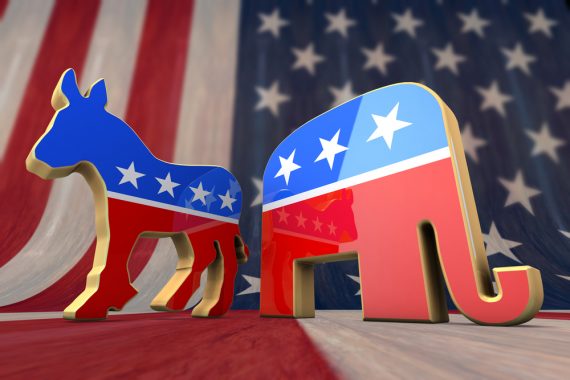
James Joyner notes that the Democratic Party has decided to reorder its primary calendar as it pertains to the process to nominate its presidential candidate. He also notes that there is some opposition to the new calendar at the state level because state legislatures set their own primary calendars. The biggest sticking spot, although not the only one, is the state government of New Hampshire, which is controlled by Republicans.
Ok, so what?
In the simplest of terms, candidate selection is one of the central functions of political parties and yet in the United States, that process is not fully in the control of parties in various ways including the primary calendar. This is because state governments run the mechanical part of primary elections (and fund those activities). Those state governments not only have their own interests (such as the economic significance of being the first primary) but often partisan ones (since any given state government might be run, at a specific moment in time, by one party or the other).
Indeed, to expand on that point: Party X may have certain goals and needs when thinking about its candidate selection process. But specific states have their own interests. Moreover, the rival party (which exists because it has a different constituency than Party X, let’s not forget) may yet have its own needs and interests.
This sums to a circumstance in which Party X is not fully capable of strategically making its own choices about who their banner carrier will be.
Specifically, while the Democrats can try and set their calendar, New Hampshire is unlikely to cooperate (and NH Republicans, in particular, are highly unlikely to do so). And while, yes, the DNC can try and punish NH, it just ends up punishing NH Democrats, not the state itself (and likely delighting NH Republicans in the process).
As such, the process to nominate the most important candidate is not fully controlled by the parties.
This inevitably affects the evolution (or lack thereof) of parties and the competitive environment of the party system itself.
This is likely an unavoidable aspect of using primaries the way US parties do (which, as I frequently note, is unique in the world). Without judging its normative value, I would simply here observe that it is yet another example of how limited control over party labels is in US parties. And is, yet again, an example of why laments about what The Democratic Party or The Republican Party does in terms of the influence of the central control of the DNC and RNC (or, really, any party elites of any type) misunderstand the decentralized way that decisions are made.
This is by no means the most significant effect of primaries on party development and behavior, but it is another reminder that parties, as organizations, have much less control over who uses their labels and how they get that control, and therefore what the party represents, than the dominant narratives (and the average American) often assume.

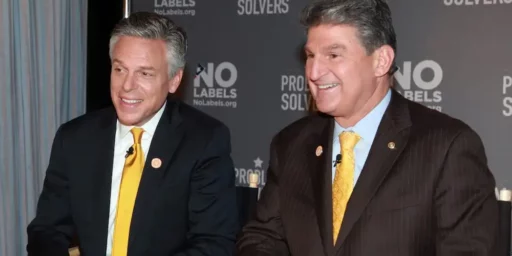
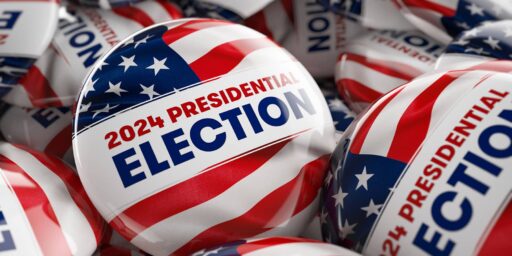

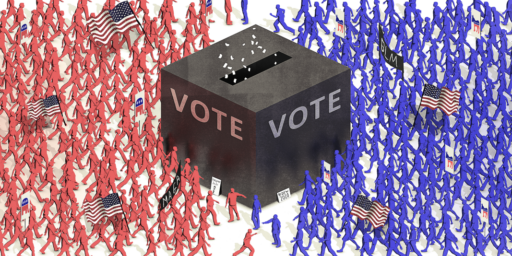
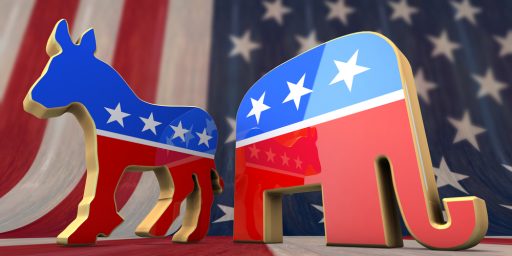
Possibly worth noting that the kerfuffle is almost exclusively about the presidential primaries. Essentially all of these states have a separate primary for all the other offices much later in the year.
@Michael Cain:
Given that this is the case, isn’t the answer/solution that the parties need to pay for the primaries the states run on their behalf? Coordinating their Presidential primaries with the regularly scheduled primaries of states is another solution, but logistics probably interferes with that being a workable solution for our system.
In other weak party news, Americans for Prosperity (sic) is saying Chuckles Koch and his buddies will spent serious money against Trump in the primaries. They pretty much own Mike Pence, but I doubt they think he’s viable even if they put all their money behind him. So Scott Lemieux is probably right to leap to the assumption they’ll back DeSantis. Maybe they can afford to buy him a personality. Looks like the GOP nomination will be decided by the MAGA primary voters and the big money donors. The RNC seems to have nothing to say about it.
@gVOR08:
I mean, it’s a factory second, but I understand Wal-Mart has them on sale. Target had them by the front door, but they were out of stock yesterday.
@Just nutha ignint cracker: Unlike our hosts here, who want to strengthen the national parties, I’m inclined to think the easiest answer is to simply do away with binding delegates to candidates. Let the state parties choose their delegates and send them to the convention without commitments. Trust their judgement.
This is obviously a silly thing to think. We live in the era of democracy, where pretty much everything must be put to a popular vote. (National presidential elections remaining an exception.) Ask the British how that Brexit thing is working out.